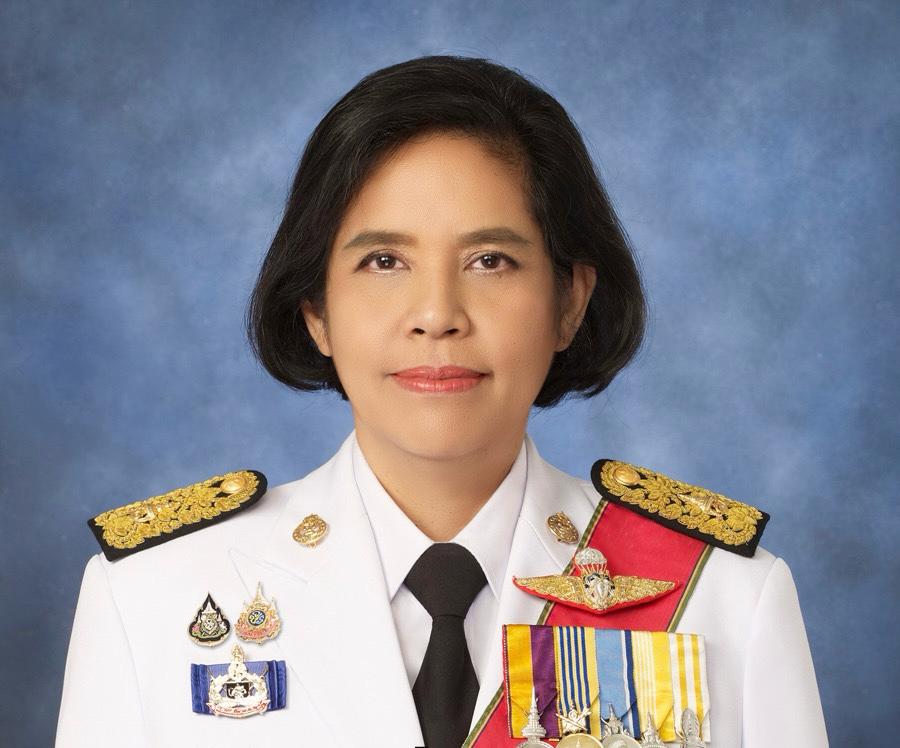
Justice Suntariya Muanpawong
Justice Suntariya Muanpawong is currently the Justice of the Appeal Court Region 2. She received a Bachelor and Master of Law from Thammasat University, a Barrister at Law from the Thai Bar Institute and Master's and Doctoral Degrees (Summa Cum Laude and Magna Cum Laude) in Public Environmental Law from the Westphalian Wilhelm University of Muenster, Germany. Her Doctorvater was Prof. Dr. Hans. D. Jarass, who was one of the most distinguished environmental law professors in Germany. Her dissertation focused on people participation in environmental large-scale projects. Before becoming a judge, she was a lawyer, a teacher in a Southeast Asian refugee camp and a legal officer in the Harbor Department. Justice Suntariya attended various human rights programs held by international institutions. She has been a proponent of people-oriented justice reform and has conducted various research projects on justice reform, child rights protection, gender justice, prisoner rights and environmental jurisprudence. She has been a visiting lecturer for law schools and many institutions.
Justice Suntariya was the first supervisor of the Judicial Research Institute, where she played an important role in enhancing the collaboration among the judiciary and other government agencies, including the civil societies. She conducted numerous research projects on environmental court and process, community rights, environmental crime and climate change justice. She has been appointed some time to be a commissioner in the environmental legislatio processes. Importantly, she was assigned to be the Secretary of the Sub-Commission of the Constitution Drafting Assembly of 2007, responsible for drafting the environmental constitutional rights provisions. She used to be the Secretary of the Environmental Law Division and the Deputy Secretary of the Supreme Court and the Secretary of the Appeal Court Region I. She was also in the working group of the Supreme Court, developing the Bill on the Environmental Jucial Process, which is currently under the revision of the Council of State. As the Deputy Chief Justice of the Court of Justice Region 5, she oversaw the environmental cases in 26 northern courts of Thailand.
Justice Suntariya has been progessively engaged in the international partnership. She joined the ASEAN Chief Justices Roundtable on environmental law. She has had study visits in the Australian environmental courts, the Environmental Crime Division of the Italian Supreme Court, the Protugese Supreme Administrative Court, the US EPA, the German environmental institutions and so on. As a champion of wildlife justice, she joined the US Wildlife and the UNEP developing the training curriculum on environmental law for judges: A Guide for Judicial Training. She participated in the one-month training program with legal officers from Asian and African continents at the International Law Enforcement Academy in Roswell, held by the US government. Justice Suntariya was once invited to the Osaka Environmental Law Conference. Her article on Implementation of Principle 10 in Thailand was published in the Environment Disruption Journal in Japanese language. Justice Suntariya has been actively engaged in the network of Asian and global environmental judges. She was a speaker at the World Judicial Conference on Environment held by the Chinese Supreme Court. She attended in the Stockhom+50 Symposium on Judges and Environment. She was a panelist with Prof. Klaus Bosselmann and other prominent scholars in the Bangkok Dialogue on the Rights of the Nature. She recently joined the activity of the Global Judicial Institute for Environment on the World Law Congres in New York. Apart from working for the environmental justice, Justice Suntariya has a strong commitment to develop all human rights protection. With the International Commission of Jurists, she firstly joined the Geneva Forum on Female Judges and later participated in drafting the Bangkok General Guidance for Judges on Applying a Gender Perspective in Southeast Asia. With the UNODC, she was in a working group for gender-related judicial integrity. Besides, she was one of the global experts in making the Handbook for the Judiciary on Effective Criminal Justice Responses to Gender-Based Violence against Women and Girls. She joined the meeting of the Commission on Crime Prevention and Criminal Justice and conducted later a research project to implement the UN Model Strategies on the Elimination of Violence against the Children in the Field of Crime Prevention and Criminal Justice in the Thai Perspective.
Far and wide, Thailand and ASEAN countries is facing with economic inequality, social injustice, political conflicts and a deep-rooted cultural transition. From her research project on People-Oriented Justice Reform: Challenge of Thought, Political Will and Action in Thailand, Justice Suntariya analyses justice principles and their changes in previous justice reform programs in Thailand along with strategic actionable policy recommendations. Mixed methods including literature reviews, expert interviews, focus groups and policy dialogues were applied. One main argument is that in the past, the justice reform idea emphasized merely the justice service, but overlooked other determinants outside justice system. As the results, the justice system dealt mostly with trials and adjudication, but did not solve the problem of social and economic injustice in a wider sense. Additionally, the affected people were excluded from reform processes.
The people-oriented justice reform is a new important paradigm, which will interweave among interpersonal justice, distributive justice and procedural justice. Expanding the concept of justice, democratizing the justice system and empowering the citizen are recommended as the new model strategies. Justice Suntariya still energetically keeps on working with judges and non-judges partners. Her recent book was the reform recommendation for the new constition on the rights of people participation in government policy, published by the King Rama VII Institute. Her current work with other court colleagues is to produce the judicial toolkit on principles of writing a good judgment, being academically supported by Thai Law Schools and the US Embassy. Her recent publications in September 2023 were "A Good Judgment" and "Objectivity in Judicial Decision".